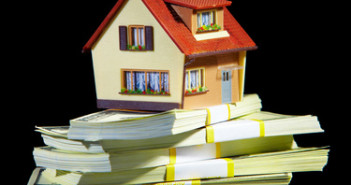Germany hasn’t suffered a real estate boom and bust. People going on vacation to Berlin are often amazed by the low prices of everything, including housing, in the German capital.
However, this might be changing as prices begin rising all over Europe’s largest economy. The change could lead to less German flexibility with the ECB’s monetary stimulus.
Here is some of the latest talk regarding rising prices:
- Global Property Guide reports that house prices in Germany are picking up: a rise of 3.1% was seen year on year to April 2013, with nearly 10% for apartments in Berlin.
- Bloomberg reports about the housing boom, and says that the German government led by Angela Merkel has already taken steps to address it. She was criticized by the opposition for this rise in prices.
- Finance minister Wolfgang Schäuble denied the existence of a bubble, and in the same opportunity also mentioned that “monetary policy cannot be overstretched”.
The last comment by the powerful finance minister is not new to those following the German dislike of extreme monetary stimulus, but in this context, it could be meaningful for the ECB.
The European Central Bank recently dropped its “we never pre-commit” stance and committed to low rates for a long time. It opened the door to further rate cuts.
With German elections coming September 22nd, the ECB is unlikely to announce new monetary stimulus until then: the German members of the ECB would not want to rock the boat before the elections. Adding the rising house prices, there is an even smaller chance of action before Germans go to the polls.
But what will happen afterwards? The price for square meter in Berlin or Munich could certainly play a role in the next decisions of the ECB. Further monetary stimulus could encourage more risk taking as cheap money would be available to fuel prices. Even if Merkel has more flexibility after a potential re-election, she wouldn’t want her legacy to be tainted with a housing bubble.
So, we could see German opposition to any new easing moves by the ECB if prices continue rising.
More stimulus means a weaker euro, and less stimulus supports the common currency.
For more on the euro, see the EUR/USD forecast.
